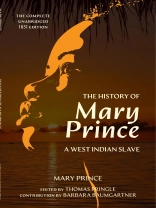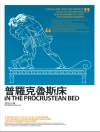Mary Prince was the first black woman to publish an account of her life in Britain-an account so brutal that few believed it. The History of Mary Prince (1831) describes Prince’s sufferings as a slave in the Caribbean Islands, and her eventual arrival in London with her sadistic owner Mr. Wood. Prince escaped in 1828 and sought assistance from the Anti-Slavery Society. Brief, forthright, and unvarnished, Prince’s account sparked outrage and catalyzed change during a pivotal moment when stormy debates on abolition were raging on both sides of the Atlantic. It inspired two libel actions and sold out of three printings in the year of its publication. This powerful cry for emancipation stands as a seminal work of abolitionist literature. This edition is a republication of the complete 1831 edition and includes additional related texts, an in-depth essay, and a detailed biographical timeline.
Tabla de materias
Contents
Preface
The History of Mary Prince, A West Indian Slave (Related by Herself)
Supplement to The History of Mary Prince by the Editor
Appendix to The History of Mary Prince
Narrative of Louis Asa-Asa, A Captured African
Report on the Parliamentary Petition
Mary Prince’s Evidence in Wood v. Pringle
The Body as Evidence: Resistance, Collaboration, and Appropriation in The History of Mary Prince by Barbara Baumgartner
Biographical Timeline
Sobre el autor
Barbara Baumgartner received her Ph.D. in English with a graduate certificate in Women’s Studies from Northwestern University. As a Teaching Professor at Washington University in St. Louis, she taught courses on contemporary gender issues, women’s literature, women’s health, and women in science for twenty-three years. She has published articles on nineteenth-century women authors including Mary Prince, Elizabeth Stoddard, and Emily Dickinson. Dr. Baumgartner is one of founders of the Washington University Prison Education Project that now offers associate’s and bachelor’s degrees in correctional centers in Missouri.












